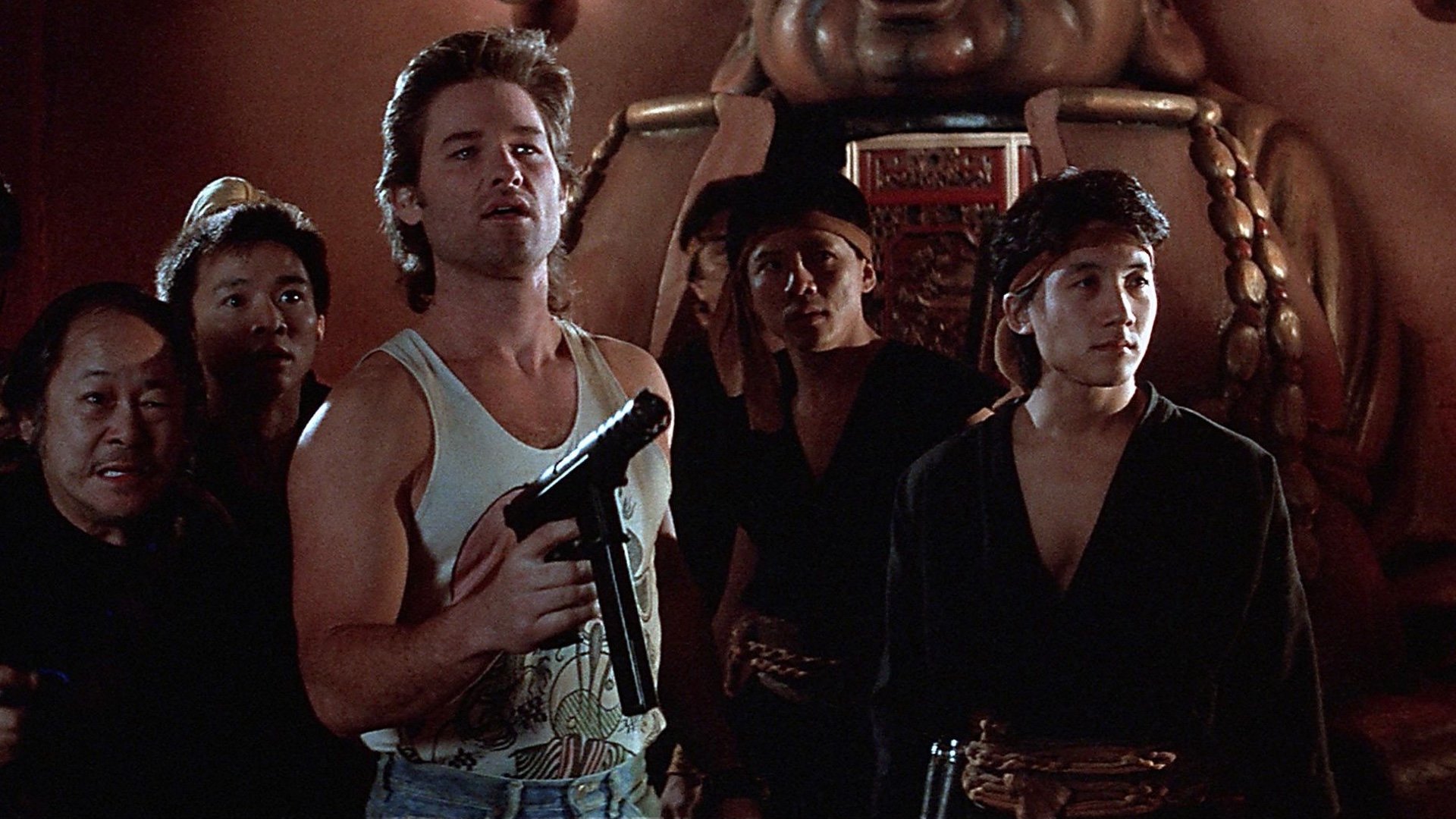
John Carpenter And Kurt Russell1986 film Big trouble in little China it’s one of my favorite movies when I was little. It was just such a funny movie with a lovely character … good old Jack Burton! This is easily one of my favorite characters from the Kurt Russell films.
Jack Burton is a witty truck driver and in the story, after his truck is stolen, he is “suddenly thrown into a wild adventure that not even he could have invented. Underlying it all is Lo Pan, a 2,000-year-old evil wizard who rules an empire of spirits beneath San Francisco’s Chinatown. Condemned to a fleshless existence, he can only be saved by a green-eyed Asian beauty. When Jack’s friend’s boyfriend is kidnapped by Lo Pan’s minions, Jack goes to the rescue. He finds himself dodging demons, grappling with goblins, and facing puzzling terrors like the Upside Down Hell Room as he makes his way through the maze of Lo Pan’s dark domain.
Carpenter offered a perfect description of the main character by saying, “Jack Burton is a guy who is a mate but doesn’t know it. He is an idiot loser. He’s a crazy American in a world he doesn’t understand. “
The film was originally supposed to be very different, though! The original screenplay written by Gary Goldman And David Z. Weinsteinand it was actually a western set in the late 1800s.
Goldman was initially inspired by the new wave of martial arts movies that were coming out that had “all sorts of weird actions and special effects, shot against this backdrop of oriental mysticism and modern sensibility”. In his story, Jack Burton was a cowboy who rides into town and finds himself on a crazy adventure after his horse is stolen instead of his truck. The story combined Chinese and Western fantasy elements.
Goldman revealed the details in an interview with Entertainment Weekly: “Ours was about a cowboy in Chinatown in 1899. Instead of a truck driver, he worked providing meat to feed the Chinese workers who were building the railroad.”
The script was presented to executive producers during the summer of 1982. Paul Monash bought the script for 20th Century Fox and had it write at least one rewrite, but he didn’t like the results. Goldman goes on to say, “The problems stemmed in large part from the fact that it was set in turn-of-the-century San Francisco, which affected everything: style, dialogue, action.”
Goldman ended up turning down a studio request for a rewrite in which they asked for several major changes. He was angry when the studio wanted to update the story to a contemporary setting. Then, the studio ended up removing the writers from the project and replacing them with WD Richter to extensively rewrite the script.
Richter felt that the Wild West and fantasy elements didn’t work together and ended up modernizing everything. Virtually everything in the original script was discarded, with the exception of the Lo Pan story. Richter said: “When I started reading (the script), I realized that what he needed was not a rewrite, but a complete overhaul. It was a terrible script. “
He ended up writing his draft of the script in ten weeks. Goldman actually contacted Richter at one point and told him that he shouldn’t be working on the project. Richter told him, “I’m sorry the firm doesn’t want to go on with you guys, but my refusal won’t get you the job. They’ll just hire someone else.”
Goldman and Weinstein still wanted to write credits on the project, but the studio dropped their names from press releases, as they only wanted Richter to get the credit. But, in March 1986, the Writers Guild of America west ruled that credit “written by” would go to Goldman and Weinstein, based on the WGA screenplay credit system that protects the original writers.
Richter ended up with an “adaptation of” credit for his work on the script. Carpenter was actually disappointed that Richter didn’t get adequate credit for the script due to the ruling. Carpenter also made his own additions to Richter’s rewrites, which included strengthening Gracie Law’s role and connecting her to Chinatown. He removed some action sequences due to budget restrictions and eliminating material that he thought would be too offensive for the Chinese Americans.
In the end, I loved the film that Carpenter delivered. But I think the original Western version of the story would have been great too!
We talked about this film on ours Secret Level podcasts and there are a lot of fun tidbits that we uncover and discuss and offer some fun comments as well.
by Joey Paur
Source: Geek Tyrant




